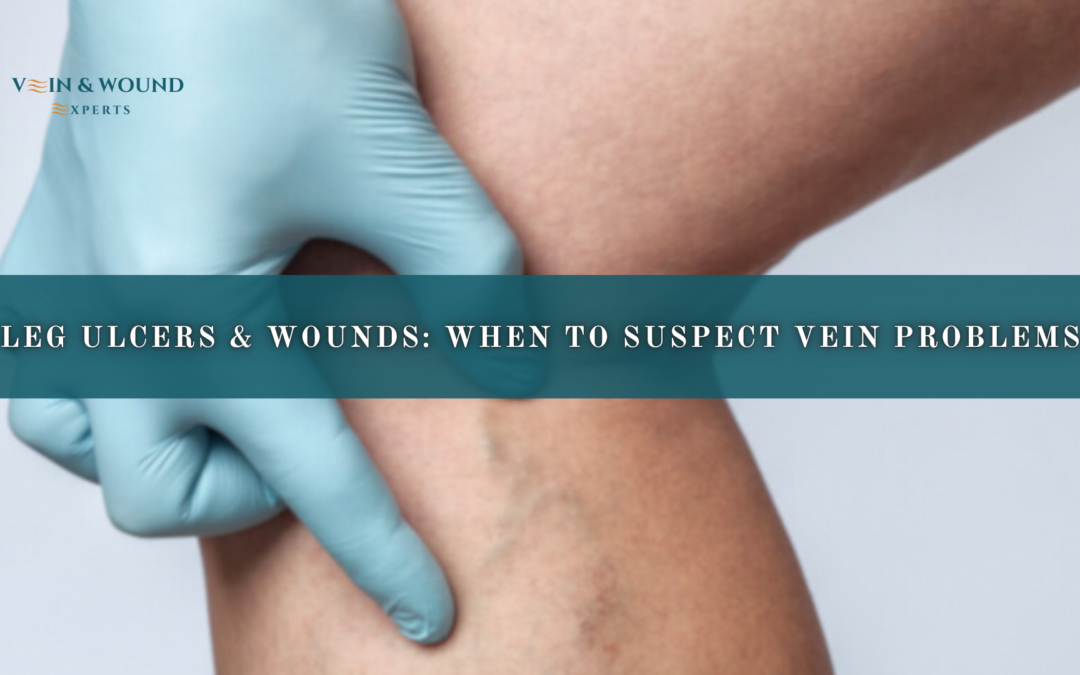When Wounds on Your Legs Signal Vein Disease 🦵💉

Leg ulcers can be more than just surface-level wounds. When these chronic sores appear, they may signal an underlying issue with your veins. In particular, vein disease is a common cause of persistent leg ulcers, which can affect your quality of life if not addressed properly.
What Are Leg Ulcers and How Do They Relate to Vein Disease? 🦠🦵
Leg ulcers are open sores that develop on the legs, typically around the ankles. They can be painful, slow to heal, and often recur. Chronic leg ulcers are often linked to poor circulation, which is a hallmark of vein disease. When the veins in your legs are not functioning properly, they can cause blood to pool, leading to pressure and inflammation that result in ulcers.
Vein disease, including conditions like varicose veins, can impair the proper flow of blood through your legs, leading to these persistent wounds. Understanding the link between leg ulcers and vein issues is the first step in effective treatment.
Identifying Venous Ulcers: Key Signs to Look For 👀🦶
Venous ulcers typically develop on the lower legs and are often accompanied by other symptoms such as:
-
Swelling
-
Redness or itching
-
Skin discoloration
-
Hardened or leathery texture around the sore
The key factor distinguishing venous ulcers from other types of leg wounds is the presence of underlying vein disease, which often causes the veins to become enlarged and twisted.
A vein doctor can perform a thorough examination to determine if your ulcers are related to poor vein health. Diagnostic tests, such as an ultrasound, are often used to confirm venous insufficiency.
How Varicose Vein Therapy Can Help 💡💉

One of the most effective treatments for varicose veins and associated leg ulcers is varicose vein therapy. This treatment targets the underlying vein dysfunction, improving circulation and reducing the risk of ulcer recurrence.
Popular therapies include:
-
Laser Treatment: Focused light is used to seal malfunctioning veins.
-
Sclerotherapy: A solution is injected into the vein to cause it to collapse and fade.
-
Endovenous Laser Treatment (EVLT): A minimally invasive laser procedure used for larger veins.
These therapies not only promote healing of current ulcers but also help prevent future wounds by addressing the root cause.
When to See a Vein Specialist 👨⚕️🔍
If you experience:
-
Chronic or recurring leg ulcers
-
Twisted, swollen, or discolored veins
-
Pain or heaviness in the legs
…it’s time to consult a vein specialist. Early intervention is crucial for preventing complications like:
-
Infections
-
Deep vein thrombosis (DVT)
-
Worsening venous insufficiency
A professional diagnosis ensures that your treatment targets both symptoms and causes.
Additional Tips for Managing Leg Ulcers and Vein Health 🧦🥗
Along with professional care, you can take steps at home to support healing and reduce recurrence:
-
Elevate Your Legs: Helps drain pooled blood and reduce swelling.
-
Wear Compression Stockings: Improves blood flow and reduces pressure.
-
Exercise Regularly: Walking and low-impact activity support circulation.
-
Maintain a Healthy Diet: Helps manage weight and supports vascular health.
These lifestyle changes are often used in combination with medical therapy for better long-term results.
The Importance of Early Detection and Treatment ⏳👩⚕️
When it comes to leg ulcers and vein disease, early detection can make all the difference. Left untreated, ulcers can worsen or become infected — but with timely intervention:
-
Healing is faster
-
Complications are avoided
-
Recurrence is minimized
Varicose vein treatments are highly effective not just for healing existing ulcers but also for preventing new ones.
Remember: A vein specialist is your best ally in maintaining healthy legs. Don’t wait for symptoms to worsen — get the answers and care you need.
Andy Scarifi
Position
